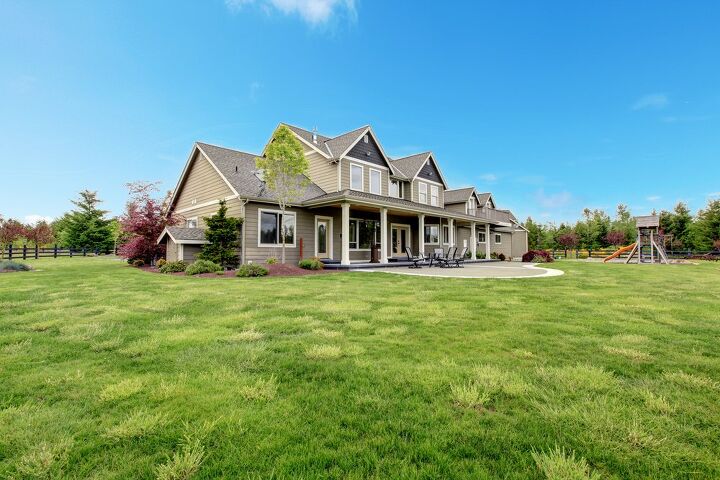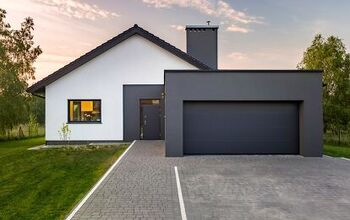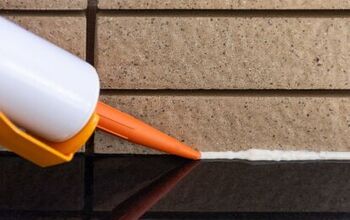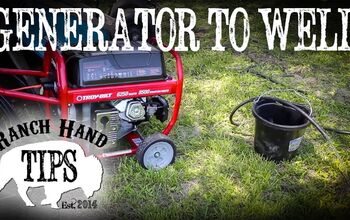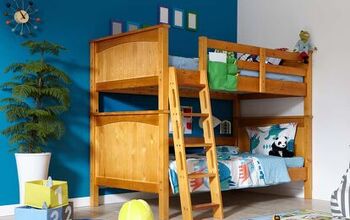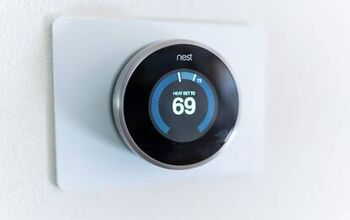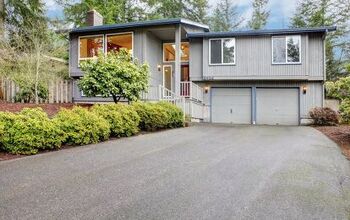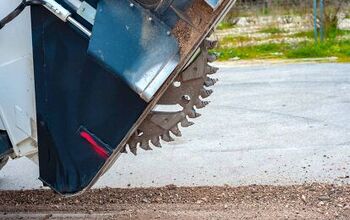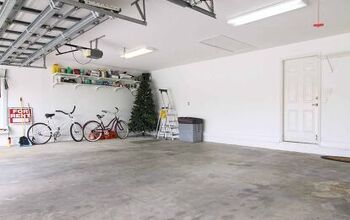Lot Size Vs. House Size: The Ultimate Pros & Cons Guide

When considering buying a home, there are different things to take into consideration: neighborhood, infrastructure, highway accessibilities and of course — the size of your home.
There are two sizes to take into consideration when purchasing a property: the lot size and the house size. In general, if you have to choose one of the other, a larger lot allows more outdoors activities and freedom, whereas a larger home is more suitable for larger households.
However, the final result of the battle between lot size and house size is determined by a wide array of factors. If you have to make a choice, then choose the one that matters the most to you.
First of All: The Money Problem
Never make a decision without evaluating your budget and financing options. The financing process for land purchase and house purchase can be quite different, especially if you are making a purchase for investment.
Your Needs and Desires
There are a few good questions you should ask yourself before investigating into the debate between lot size and house size. These questions can be:
- What am I buying this property for?
- Do I expect a growth of my household size in the future?
- How long do I plan on living here and what are my biggest lifestyle needs?
- Do I have the necessary knowledge to make full use of a large lot, or take care of a big house?
- How much does location, neighborhood and community matter to me?
Once you have a clear understanding of what you are looking for, you can dive into learning more about what comes with a big lot and/or a big house.
Owning a Large Lot
Have you read Anne of the Green Gables?
Having a large lot meaning you will have the freedom to run across the land and build your own sanctuary. It means you have the opportunity to “live off the land” and truly be one with nature. Many even see owning a larger lot as a great business opportunity as well. Some builds out ranches and farms, others leverage other methods to profit from what they own.
However, there are other things associated with owning a larger lot that needs to be taken into consideration.
Larger Lots and Their Location
It is common sense that the closer you are to an urban center, the smaller the lots become. In a busy city, land is an expensive resource after all.
To display the relationship between lot size and lot location, take a look at the Top 10 states with the largest lot sizes in the United States.
State Ranking By Lot Size
| State | Average Lot Size (sqft) | |
| 1 | Vermont | 75,794 |
| 2 | Montana | 73,616 |
| 3 | Mississippi | 56,628 |
| 4 | New Hampshire | 48,787 |
| 5 | Maine | 44,431 |
| 6 | Louisiana | 43,560 |
| 7 | West Virginia | 40,511 |
| 8 | Arkansas | 32,234 |
| 9 | Wisconsin | 30,000 |
| 10 | Tennessee | 27,443 |
As you can see, the states with larger lots are quite mountainous. Most of them are located in the Mid or the MidWest, which means if you are looking for a larger lot to play with, you are signing up for a countryside lifestyle for sure.
Challenge With Larger Lots
Larger lots can be extremely high maintenance. A big house can be maintained with one or two grown-ups, but a giant lot will require machinery to keep up with maintenance needs.
For example, housing efficiency is usually quite low on large lots, with the majority of lands unoccupied for the most time. Sure it is a ton of fun — but also a ton of extra work to stay on top of the upkeep.
Let alone the investment on equipment, expenses of energies and human resources that naturally incur with owning a large lot.
Owning a Big House
A big house with a relevantly small lot, on the other hand, is a completely different story.
There are many perks of owning a big house. If you have an extended family, a big home means everyone gets to live together. With the way the economy and the housing market has been, having that availability is definitely a luxury.
In addition, a big house can also be multi-purposed to be used as a family business space. Naturally, it also allows bigger inside parties and many more options when it comes to indoor entertainment.
Larger Houses, Luxury Homes and Where They Are
Most large houses are located in suburban areas, with a close enough distance to a semi-major city, or even a metropolis. That is why most large houses also fall into the luxury home category with a pricing of $250,00 or above.
Being in the middle of the crowded, sometimes over-populated metro and the overly-scarce, lack-of-commune country, larger houses in suburban areas have always been a hot topic among investors and home buyers.
Below is a chart of the Top 10 states with the largest homes.
State Ranking By House Size
| State | Average House Size (sqft) | |
| 1 | Utah | 2,305 |
| 2 | Colorado | 2,126 |
| 3 | Wyoming | 2,052 |
| 4 | Montana | 2,040 |
| 5 | Texas | 2,031 |
| 6 | South Dakota | 1,984 |
| 7 | Georgia | 1,963 |
| 8 | Idaho | 1,932 |
| 9 | Maryland | 1,920 |
| 10 | Washington | 1,903 |
Challenges of a Large Home
Owning a large home has quite a few requirements. For one, nobody wants to live in a big house alone.
Therefore, most large homes consist of a large household. It was often purchased when the buyers were expecting to have children and grow their family, and frequently sold for the purpose of downsizing.
Utility bills can also be quite intimidating for large houses, especially during the summer and winter season. On top of all that, decorating a large house (2,000 sqft or above) can be a huge expense if not done properly.
The Reason for Purchase
When it comes to comparing the lot size with house size, the reason for purchase often plays a decisive role.
In some circumstances, the lot size rarely has an impact on the actual purchase whereas location, housing capacity (no. of bedrooms, etc)
Flip & Rental
If you are buying a property for flip and rent purposes, then the lot size is usually not a decisive factor. When it comes to most rental properties, location is often more critical than any other factors.
Also, house size is far more important when it comes to the value of rental properties. The numbers of bedrooms and bathrooms, basement and shelter condition, also the age of the house can all impact the property’s value and the final rent price.
Buying a New Home
If you are buying a property to be your new home, then it’s important to think about the lifestyle you’d like to have.
Living in a small town far out in the country and living in a big city, or even a suburb outside a city are quite different. Understand your most important needs and what makes you happy will be the key to deciding whether you value lot size more or home size more.
Also, think about your budget. A larger lot comes cheaper than purchasing a large house because of the lower “decoration” cost, but in the long run, it is less efficient.
Real Estate Investment
If you are purchasing with the idea of investment in mind, then there are a few things you need to pay attention to when making the choice between lot size and house size.
Lot, or land size carries enduring value, and the more usable land you have on your lot, the higher the development value it carries. The house itself matters less compared to land efficiency in this case.
In the meantime, house size, structure, year built and location/neighborhood altogether decides the appraisal value of an investment home.
Summing It Up
The debate between lot size and house size is never going to end. But using the chart below, you will see a brief summary of the pros and cons when it comes to lot size vs. house size.
| Large Lot | Large House | |
| Activities | Wide range of outside activities available | Intricate indoor activities can be achieved |
| Investment Values | Land has enduring value and can be transformed into farms or ranches | Housing value is growing quickly nowadays |
| Location | The larger the land, the deeper into the countryside it is | Larger houses are often in the suburbs, close enough to city areas |
| Efficiency | Low energy efficiency | Efficiency can be raised |
| Upkeep | Needs more people and large machinery to maintain | Can be maintained by a single-family with professional help at higher costs |
| Population Density | Your closest neighbor may be 15 minutes away | Often has a strong sense of community with an HOA |
| Pricing | $3,160 per acre (2019) | $250,000 or above |
To decide whether you should go with lot size or house size when buying a property, you should think about why you are buying first, then evaluate your budget. From there on, you can prioritize your needs and desires and make the best decision.

We are a team of passionate homeowners, home improvement pros, and DIY enthusiasts who enjoy sharing home improvement, housekeeping, decorating, and more with other homeowners! Whether you're looking for a step-by-step guide on fixing an appliance or the cost of installing a fence, we've here to help.
More by Upgraded Home Team



